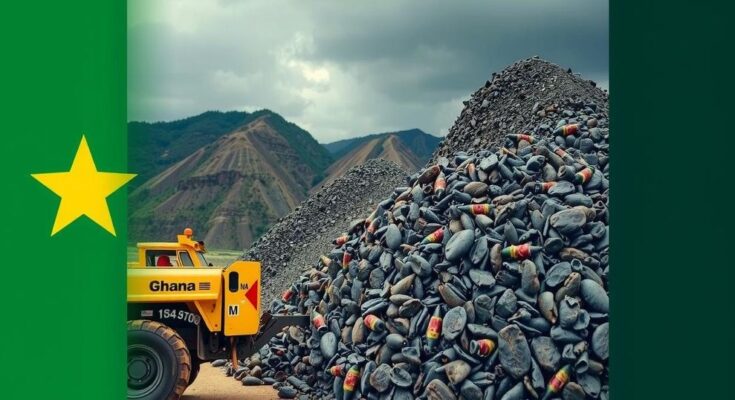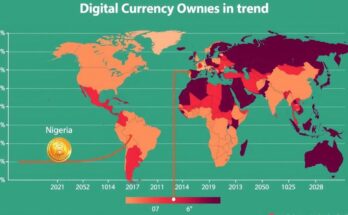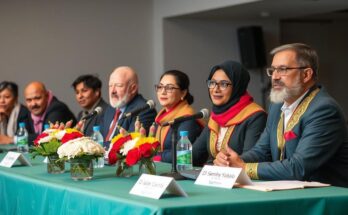Illegal mining, known as galamsey, threatens Ghana’s economy by decreasing cocoa production, polluting water supplies, and contributing to food inflation. The current surge in illegal operations, driven by high gold prices, largely results in the smuggling of gold out of the country, depriving Ghana of revenue. As the country prepares for a presidential election, candidates are pledging to address this pressing issue amid public protests calling for action.
Illegal mining, widely known as “galamsey,” poses a significant threat to Ghana’s economy as the nation approaches its presidential election. This illegal activity has drastically diminished cocoa production, polluted water sources, and exacerbated food inflation. The current surge in illegal gold mining is being fueled by rising global gold prices, although most of the extracted gold is illicitly smuggled out of the country, depriving Ghana of potential revenue from its status as Africa’s leading gold exporter.
These unregulated miners often operate in rudimentary pits, utilizing harmful chemicals such as mercury to extract gold, which they then discard into local waterways. The influx of foreign entrepreneurs, particularly from China, has been instrumental in expanding the illegal mining sector by forming alliances with local authorities and providing advanced mining equipment. Furthermore, the encroachment of illegal mining operations onto agricultural land has caused a worrying decline in cocoa production, vital to Ghana’s economy, with expectations that outputs for the upcoming season will be nearly 40% below industry goals.
The domestic water supply is also at risk, as contamination resulting from illegal mining has prompted warnings from the Ghana Water Company. Such situations have ignited public outcry, with demonstrators advocating for the issue to be addressed during the presidential campaigns leading up to the December 7 elections. The economic implications of illegal mining have historically fostered corruption and have created financial benefits for local communities and influential political figures alike.
Both major candidates in the upcoming election, Mahamudu Bawumia and John Dramani Mahama, have pledged to combat galamsey. Bawumia’s strategy includes establishing a minerals development bank to support local mining initiatives. In contrast, Mahama proposes a regulatory gold board to oversee the mining sector and a plan to convert illegal mining sites to agricultural use.
While the rapid increase in gold production through illegal means has led to a temporary economic boost, the smuggling of these resources undermines export revenues. Moreover, this phenomenon is linked to wider agricultural distress, further complicated by adverse effects from climate change and crop diseases. As Ghana prepares for a change in leadership following the election, officials face the pressing challenge of revitalizing an economy stricken by a severe crisis and debt default.
Ghana, a prominent cocoa and gold producer, faces a sharp increase in illegal mining, commonly referred to as galamsey. This illegal sector has been accelerating, driven largely by rising gold prices on the international market. It has not only greatly impacted agricultural production, particularly cocoa but has also polluted vital water resources. The added complexity of this situation is that illegal mining activities have created a web of economic dependency, where communities and political figures benefit financially, complicating any reform efforts that may be aimed at controlling or regulating this illicit practice.
In conclusion, illegal mining activities in Ghana pose multifaceted challenges to the country’s economic stability and environmental health. As Ghana approaches a pivotal election, the incoming government will need to navigate the complex landscape shaped by the illegal mining sector, which, while providing some economic benefits, ultimately undermines long-term growth and sustainability. Solutions may lie in formally regulating these operations, thus capturing lost revenues and ensuring safer working conditions for miners.
Original Source: www.semafor.com




